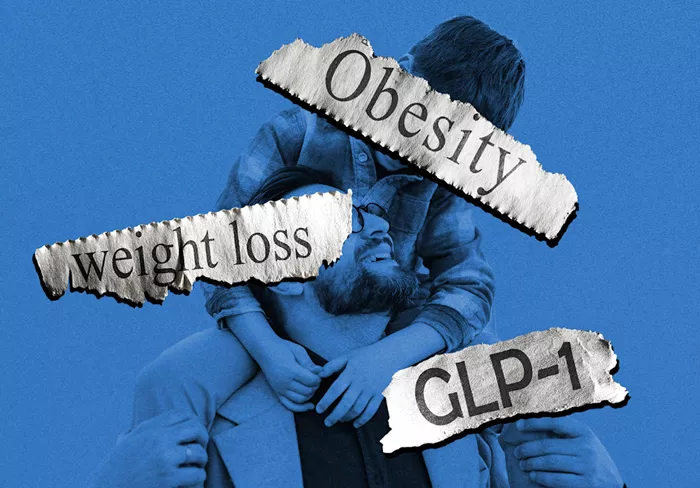For years, Neal Bland pushed his body to its limits. He ran marathons, competed in Ironman triathlons, and trained others as a personal coach. He was always conscious of his health, especially because obesity ran in his family. But by 52, Bland started to feel the effects of aging and genetics. His blood pressure and blood sugar were creeping up. His body mass index (BMI) reached the low 30s, and joint pain made it harder to stay active. A photographer’s comment during a family photo shoot—saying he had a “good dad bod”—stuck with him. Despite keeping up with his fitness routine, it wasn’t enough. In March 2024, he began taking tirzepatide, a GLP-1 weight loss drug. Since then, he has lost 45 pounds and says he feels like himself again.
Bland is part of a growing number of fathers using GLP-1 medications to improve their health. While there is nothing wrong with having a so-called “dad bod,” obesity poses serious health risks. More than a third of American fathers are considered obese, and many are turning to these medications not just to lose weight, but to be more present and active in their children’s lives.
Noah Wiggins, 37, is a father of two and recently began a new career in health care. As he prepared to enter the field, he realized he needed to be an example of the healthy habits he hoped to promote. Though he had tried different diets, the results never lasted. So, in January 2024, Wiggins started taking Zepbound, a GLP-1 drug. Since then, he’s lost over 80 pounds. His kids supported him throughout the journey—offering encouragement, holding him accountable, and celebrating his progress. His teenage daughter especially kept him on track, reminding him to skip unhealthy snacks and stick to his workouts.
Still, Wiggins admits the physical transformation came with emotional challenges. After the weight loss, he expected to feel fully content. But looking in the mirror, he struggled with body image and realized he was dealing with body dysmorphia. At one point, he considered losing more weight, even though it would have put him below a healthy level. Instead, he focused on improving his mental health and learning to accept his new body. Now, he talks openly with his children about body image, self-confidence, and finding balance between health and self-acceptance.
Ryan Rasmussen’s journey with weight loss medication began after years of trying and failing to keep the weight off. Twenty years ago, he and his wife, AnnaLyn, lost their newborn quadruplets. Though they went on to have four more children, the grief never left him. He turned to food for comfort and eventually reached nearly 300 pounds. Over the years, Rasmussen tried different diets with little success. Inspired by his sisters’ results on GLP-1 medication, he decided to try it himself. Within a year, he lost 80 pounds.
Rasmussen’s transformation has changed his day-to-day life. He now joins his family on ski trips and hikes—activities that were once painful. His healthier habits have influenced the whole household. Sweets are now an occasional treat, and late-night snacking has stopped. He’s also rediscovered his love for fashion, saying being able to dress well again has helped his mental health. His appearance hasn’t gone unnoticed—one of his daughter’s friends even joked that he was attractive, a moment that Rasmussen laughed off with good humor.
For Bland, the decision to start GLP-1 medication was also about staying ahead of the health risks he saw in his family. His mother, despite living a generally healthy lifestyle, needed joint replacements and suffered a stroke—conditions linked to weight. Bland was determined to avoid a similar path. Though he didn’t qualify for brand-name GLP-1s, he found a compounded version of tirzepatide. The results were immediate. He felt fewer cravings, less joint pain, and better recovery after workouts. Even his adult son noticed the difference and jokingly asked if he was taking performance-enhancing drugs.
At 53, Bland says he now feels like the man his wife married. His weight is back to where it was years ago, and he’s on a low maintenance dose to prevent further loss. For him, this journey has been more than just physical—it’s a return to the life and energy he thought he had lost.
As more fathers turn to GLP-1 medications to reclaim their health, their stories reveal a deeper motivation: being there for their families. Whether it’s coaching sports, hiking with their kids, or simply feeling comfortable in their own skin, these men are redefining what it means to be a dad—healthier, more confident, and more present.
Related Topics:
Medicaid Changes May Limit Weight Loss Drug Access in PA
UK Food Makers Cut Salt and Sugar in Major Reformulation Push


